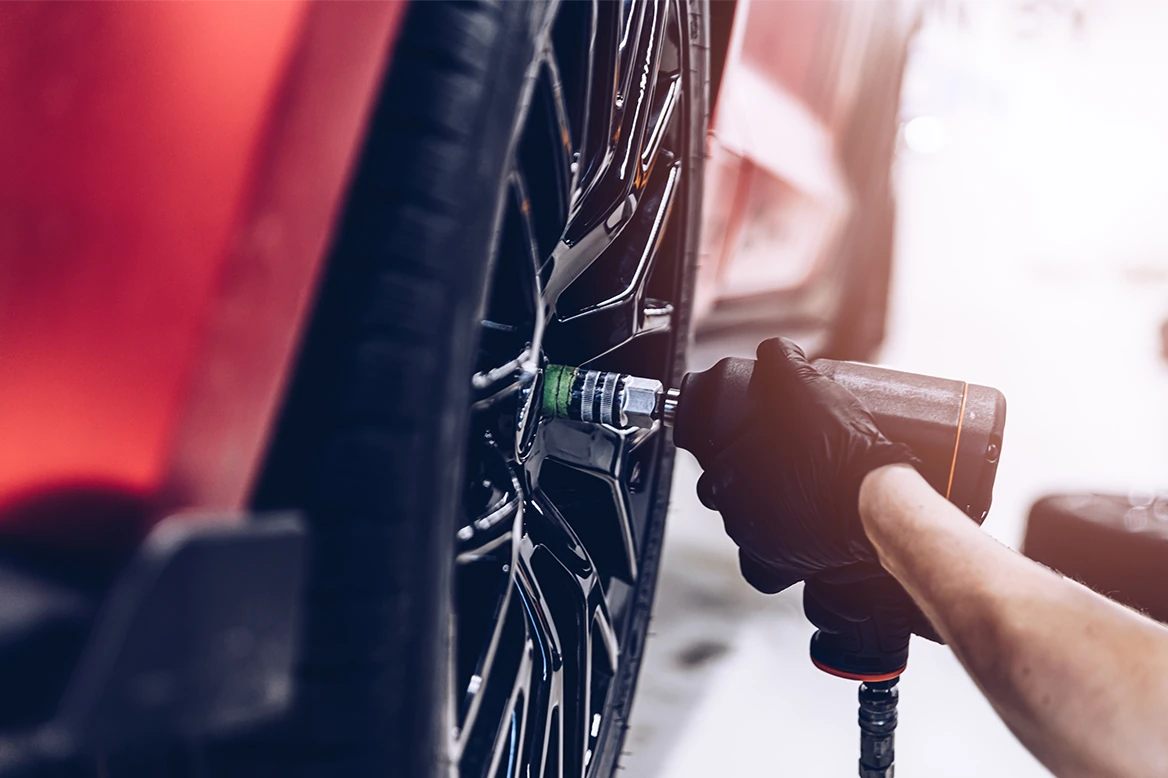Auto Repair
UP TO $125 OFF
ON YOUR BRAKE SERVICE*

Offer expires 09/30/25
View DetailsOnline Special · Save $25 when you book online

Bruce’s Tire & Auto offers complimentary brake inspections and expert service on brake fluid, rotors, pads and more, all handled by our trusted Sun & ASE-certified technicians to ensure safe and dependable braking every time you drive.
Address brake issues promptly to avoid costly rotor damage and ensure safe, reliable stopping.
Look for these warning signs:
Our Sun & ASE-certified technicians check your brake pads during every oil change and recommend replacement based on wear—usually between 30,000 and 70,000 miles, depending on how and where you drive.

We’ve put together the most important brake repair information to help you drive with confidence. Need more help? Just give us a shout!
The life expectancy of brakes depends on varying factors. Poor driving habits such as braking excessively, frequent hard stops, driving uphill and downhill or steep grades, weight of the vehicle including cargo and passengers, the type of brake pads the vehicle is equipped with, brake fluid condition, and a worn-out suspension system can reduce the lifespan of brakes. Because of all the different contributing factors, it is recommended to have your brakes inspected often. At Bruce’s Tire & Auto Service, we perform free brake inspections with many of our services, especially oil changes.
Brake shake can be caused by several different issues including worn suspension components, worn brake pads, or warped rotors. The ABS system attempting to activate due to failed or damaged components can cause shaking. It’s best to have an experienced technician inspect the system to determine the cause as not all “brake shakes” are caused by the braking system.
Brake repairs and replacement costs vary based on what is necessary to repair the area of the brake system properly. Every vehicle’s needs are unique. Some vehicles may require replacement of multiple brake components while some may only require brake pads and resurfaced rotors. Take advantage of the free brake inspection provided by Bruce’s Tire & Auto Service to determine what your vehicle may need. Our friendly Service Advisors will review your options and discuss the amount of time and costs required to repair your brakes properly.
Shop service deals, tire savings, and complete auto care offers so you can save more on the services and repairs you need.
Explore our trusted services designed to keep your vehicle performing at its best.

From tires to expert repairs, our team is dedicated to keeping your vehicle running its best with reliable, personalized care you can trust.
Find a shop
We believe car care should be clear as day. That’s why every visit includes a Courtesy Digital Vehicle Inspection, a 50+ point check of your car’s key systems. From under the hood to around the wheels, our Sun & ASE-certified technicians assess your vehicle’s condition, note what needs attention now and what can wait.
Read reviews from satisfied customers who trust Bruce’s Tire & Auto Service for reliable car repair, quality auto service, and expert vehicle maintenance.

Unlock exclusive auto service deals! Sign up now to get emails with the latest discounts on oil changes, brake repairs, tire specials & more—designed to save you money and keep your car running smoothly.